Indomitable struggle for human rights pays off
Peasant's son appointed chairperson of Sindh Human Rights Commission
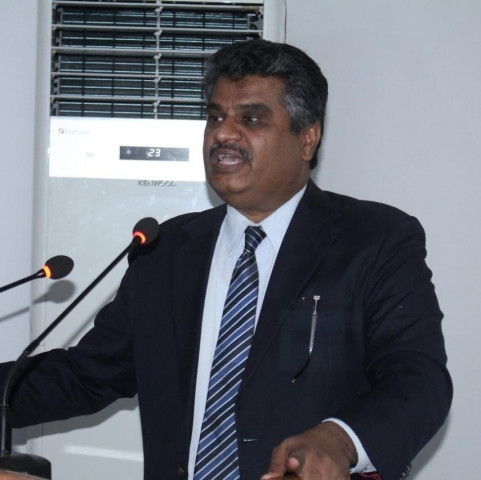
In a first, the son of a peasant has been appointed chairperson of the Sindh Human Rights Commission in an attempt to contain the rising incidents of human rights abuses in the province. Iqbal Ahmed Detho, son of a peasant labourer who has become a leading human rights defender in Sindh, has replaced Justice (retd) Majida Rizvi with an overarching mandate to safeguard the basic constitutional rights to life, liberty, equality and dignity of the individual.
Iqbal Detho, who was earlier working as a member of the Sindh for the National Commission on the Rights of Child, has inherited a host of issues and new more enduring challenges relating to human rights. "I've not landed into a comfort zone. I shall try to improve the human rights situation under whatever mandate the commission has given me," he told The Express Tribune.
Detho was born in an impoverished village, Nazar Mohammad Detho, in Larkana district in 1971. He received his primary education, but since his peasant father had no resources to afford further education, he moved to his maternal uncle's house in Shikarpur town where he completed secondary and higher secondary education and earned a living while working in a grocery store and teaching students at their homes.
After intermediate, he went to Shah Abdul Latif University in Khairpur Mirs where he obtained a master's degree in 1999. Then, he received a master's in 'Human Rights' from the London School of Economics in 2007-8 as Chevening Scholar and Hubert H Humphrey Fellow (Law & Human Rights), at Humphrey School of Public Affairs, University of Minnesota, US, 2011-12.
Detho, who since his childhood has witnessed the evil practices of modern slavery, exploitation of peasants at the hands of landlords, child assaults and tribal reigns, said: "I was born and raised in an agrarian and tribal culture where children, women, and peasants are considered lesser mortals. It sensitised me to such an extent that I started my activism from these issues," he said, adding that his entire career revolves around defending human rights that include right to life, liberty, freedom from slavery, and freedom of opinion, and many more.
"After completing my first Master's degree, I started my career in the development sector, then I remained Amnesty International's volunteer Secretary General for Pakistan from 2001-2006. Since I had passion to work on a rights-based approach, I later joined the Society for the Protection of the Rights of the Child and served as its provincial manager," he said.
Equipped with 15 years of experience as human/child rights trainer/educator, Detho has also served as a member of the Monitoring Committee on Prevention of Child Marriages, Women Development Department, Government of Sindh, and a member of the Curriculum Development Program, Sindh Police. He has conducted several research studies, including on the issue of tribal and informal/traditional justice in Pakistan and co-authored "Protecting Human Rights: Training Module for Police Officials" in 2014 and wrote a few books and modules on Community Policing, Juvenile Justice System in Pakistan and Responsibilities of Police Officers for Prevention of Honour Killings.
Talking about the human rights issues and challenges confronted by Sindh, Detho said, "My job is now to take cognisance of human rights violations, entertain the public complaints and write to the concerned authorities recommending the government remedial measures to resolve the issues."
"Under the law, we have no authority to punish or force anyone," he said, adding that currently around 301 complaints involving human rights violations are pending before the commission that would be his priority to take up.
According to Sindh Human Rights Commission Act 211, the chairperson with his team is supposed to take the suo motu notice of the human rights violations writing to the relevant departments and officials to redress the issues, formulate, implement and regularly update policies with a view to protect human rights.
"My job is not confined to redressal of complaints, or referral mechanism, but we have to play a role in implementing the laws and policies drafted by the provincial government," he said, adding that conducting research on human rights issues and developing fact-finding reports, implementation on policies and convention signed by the Pakistan government are among other roles that come under his domain.
"We have limited resources and manpower. I will try to sensitise the government authorities and donors to come forward and join hands with us, so that we can enhance the scope of our commission at grassroots level making a difference with our interventions," he said.
Published in The Express Tribune, May 1st, 2023.

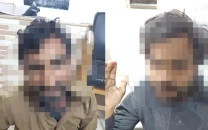



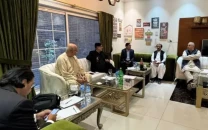

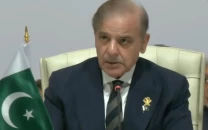
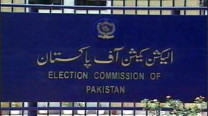
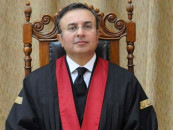









COMMENTS
Comments are moderated and generally will be posted if they are on-topic and not abusive.
For more information, please see our Comments FAQ